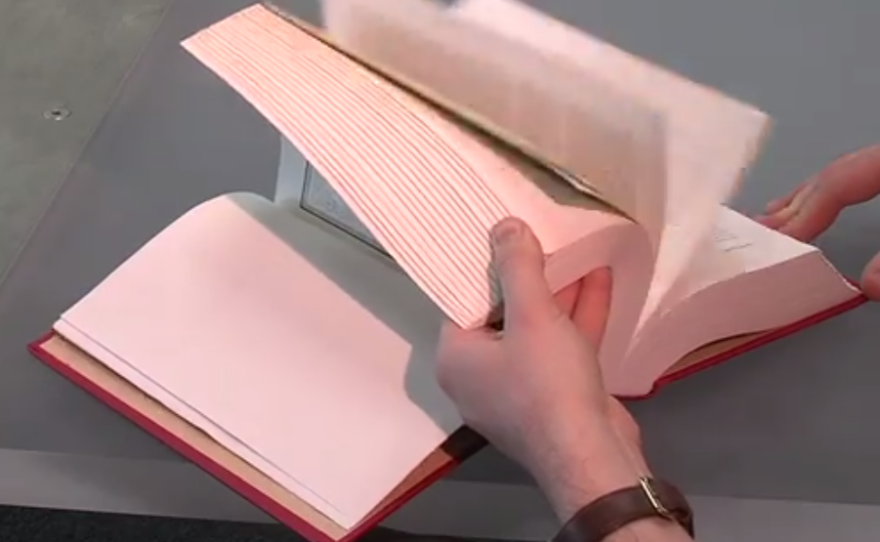Whether we're instant messaging or ordering same-day delivery, we do everything faster now. Except one essential thing—the very thing you're doing right now: reading.
Some app developers see all that time spent reading as a major flaw in human design. Enter new companies such as Spritz, Squirt, and Spreeder, all promising to help readers get through entire books in a single hour.
But scientists doubt any of these apps will actually work.
"The science doesn't back up most of the claims of speed reading," said Elizabeth Schotter, a psychology researcher at UC San Diego's Rayner Eye Tracking Lab.
Schotter explained that pretty much all college-educated people read somewhere between 200 and 500 words per minute. Sure, you could try reading faster. But kiss comprehension goodbye.
"You're not going to get as much out of something that you just blow through," she said.
Research debunking speed reading has been around almost as long as speed reading itself. Yet we keep falling for it, not realizing that shiny new apps might just be old tricks in disguise.
Take Spritz, the company attracting perhaps the most interest. It sports a sleek and modern design, but it's largely based on an established speed reading system called R.S.V.P., or rapid serial visual presentation.
Basically, Spritz breaks down sentences into individual words, aligns those words in a little rectangle, and flashes them at the reader, one after another, at varying speeds. One way that method cuts down on reading time is by preventing users from re-reading. Readers can't glance back in the text to make what reading scientists call "regressions."
"In the speed reading world, because they're emphasizing speed over comprehension, sure, they can think of regressions as a bad thing," Schotter said.
But she disagrees, arguing you can't really understand a text without at least some re-reading. Schotter knows that because she proved it in a paper published last month.
To study how re-reading affects comprehension, Schotter designed an experiment robbing participants of their ability to re-read. Subjects stuck their face into an eye-tracking machine, and then read complicated sentences displayed on a computer monitor in front of them. After reading each sentence, they had to answer a yes or no question about it. Using infrared light, the eye-tracking machine knew exactly when subjects finished reading each word.
"And what we did is, we replaced each letter in a word with an 'X' after the person moved past it," Schotter said.
Subjects did much worse answering questions about what they'd read when those 'X's blocked them from re-reading.
"When they felt like they needed more information from the text, then they went back to look at a word, they're looking at 'X's, so they're not getting any information from it. And that's when comprehension is poorest," Schotter said.
When the subjects could read normally—without the words turning into Xs right before their eyes—they got more questions right. The conclusion: Re-reading may seem inefficient to companies like Spritz, but Schotter's data suggests reading without re-reading isn't really reading at all.
On its website, Spritz claims its app is based on science. But the company doesn't cite any papers published in peer-reviewed journals. And it didn't return my request for an interview.
Schotter said tech start-ups may never find a way to hack the reading process. "It's a really complicated process that I don't know if there are any shortcuts around," she said.
Humans have been reading text laid out on static surfaces for thousands of years. If there were a better, quicker way to do it, Schotter suspects we would've discovered it by now.







